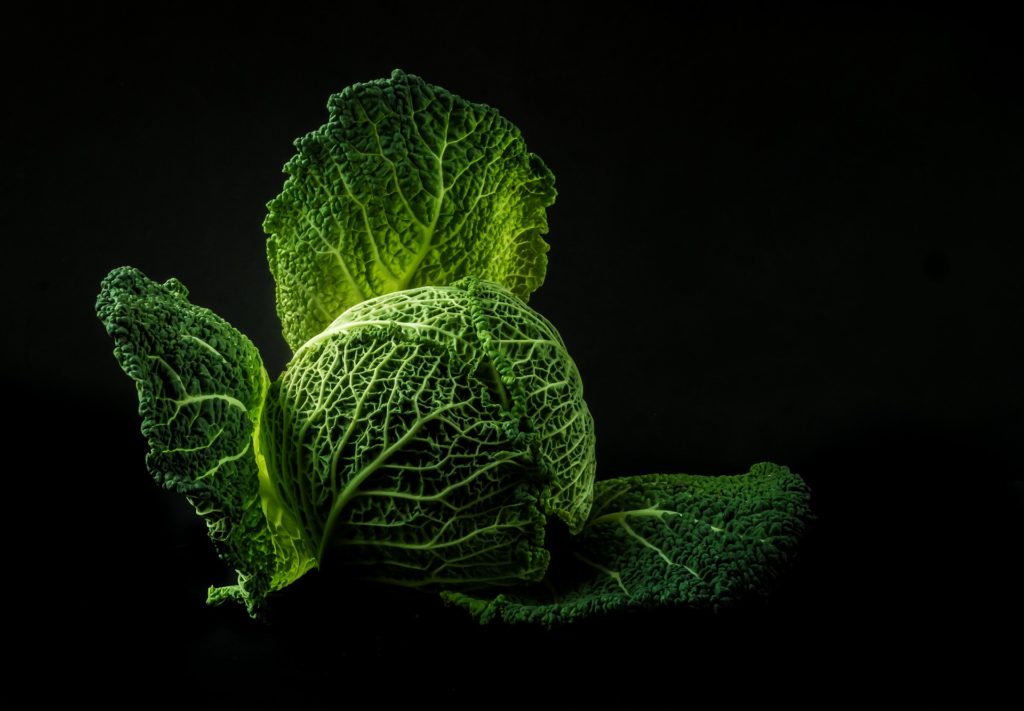The cabbage ( Brassica oleracea var. Capitata ) was created by selecting cabbage for a longer period of time. The oldest type of cabbage was found in Ancient China, 4000 BC, and was also known in Ancient Greece and Rome.
It is one of the oldest types of vegetables, which seems to be with us since the old times, and is cultivated with equal passion both in the East and in the West.

This widely used vegetable has high biological and low-calorie value (24 kCal / 100 g). It contains mostly water, less fat, and protein. It contains a large amount of cellulose, amino acids choline, and tryptophan.
It is rich in vitamin K, C, A, B6, less vitamin B1, and B2, E but also minerals – potassium, magnesium, calcium, phosphorus, zinc, selenium, copper, sulfur and folate. It also contains noticeable amounts of anti-inflammatory polyphenolic compounds.
Table of Contents
Why is the cabbage beneficial:
- It purifies the body from waste materials that accumulate in the intestine, kills the harmful bacteria, improves digestion and prevents constipation,
- Juice from fresh cabbage can be used to treat gastric ulcer (regulates the growth of Helicobacter pylori in the stomach) and inflammation of the colon,
- Preventively helps with colds and cough due to the rich composition of vitamins and minerals,
- The presence of antioxidants (vitamin C, beta-carotene, selenium), polyphenols, glucosinolates and anthocyanins (present in red cabbage) helps prevent various cancers. They work safely improving the defensive mechanisms in the body,
- Reducing cholesterol, improving the condition of the cardiovascular system,
- Preventively against osteoporosis,
- It contains tartronic acid, which slows down the conversion of sugars and carbohydrates into fat, which is why it is recommended to reduce weight,
- Against a hangover,
- As a coating for wound healing and skin infections due to its antibacterial and anti-inflammatory effect,
- Relieving breast pain in breastfeeding women (cabbage leaves),
- Cure against scurvy – because it is rich in vitamin C.
Be careful: Do not overdo it with eating cabbage because it can cause gases and bloating due to the irreducible present sugar reflux, and diarrhea due to fiber. People who take blood clotting drugs should be careful because it is rich in vitamin K that supports this process.
It is recommended that nursing mothers do not eat cabbage, since infants may develop colic. Patients suffering from hypothyroidism are advised to avoid consuming this vegetable because it reduces the use of iodine in the body (this applies to people who suffer from this disease or are predisposed to it, otherwise the cabbage is not a factor that initiates the occurrence of this condition).
